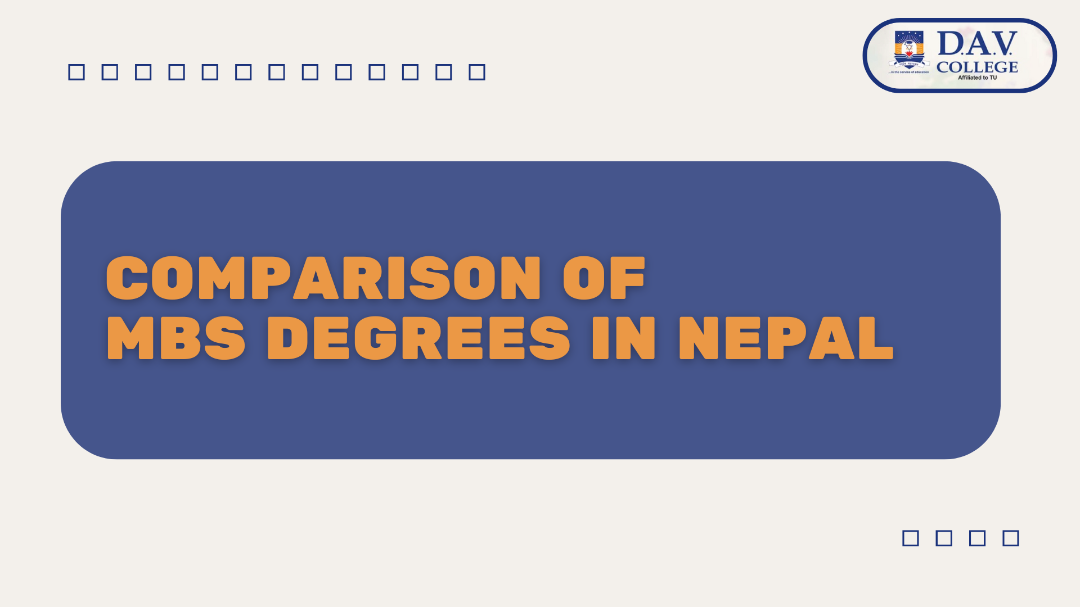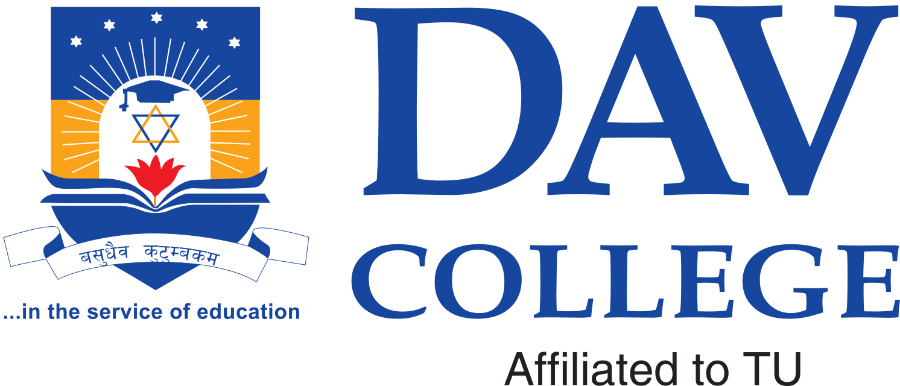TU vs KU vs PU: Which MBS Degree Is Better in Nepal?
Published on 2025-07-24

In Nepal’s evolving education landscape, the Master of Business Studies (MBS) program represents a pivotal step for students seeking to enhance their business acumen. However, the pressing question remains: which university offers the best MBS degree —Tribhuvan University (TU), Kathmandu University (KU), or Pokhara University (PU)?
Choosing the right university is not just about reputation—it's about alignment with your career goals, learning preferences, and future aspirations. This comparison guide breaks down the MBS offerings from TU, KU, and PU to help you make an informed decision that shapes your professional journey.
1. Overview of the MBS Program in Nepal
Before diving into university-specific differences, let’s quickly outline what the MBS program in Nepal generally entails:
- Duration: 2 years (4 semesters)
- Eligibility: Bachelor's degree in management or equivalent
- Objective: To develop managerial competence with a blend of theoretical and practical knowledge
- Structure: Core business courses + specialization + research/project work
Now, let’s break down how TU, KU, and PU shape this program in their unique ways.
2. Tribhuvan University (TU): The Legacy of Scale and Accessibility
Pros:
- Most expansive network: TU boasts the largest network of affiliated colleges across Nepal.
- Affordable: The fee structure is accessible for a broader demographic.
- Experienced faculty: Decades of academic tradition and teaching expertise.
- Exam-based evaluation: Prioritizes theoretical mastery.
Cons:
- Administrative delays: Known for slower results and sometimes irregular scheduling.
- Limited digital integration: TU still lags in technology-enhanced learning.
Ideal For:
Students seeking a cost-effective degree with vast accessibility and institutional legacy.
3. Kathmandu University (KU): The Premium Academic Environment
Note: KU does not offer an MBS degree under that specific title; however, it provides Master of Business and Management (MBM) or MBA programs that are academically equivalent.
Pros:
- Quality over quantity: Selective intake ensures smaller class sizes and personalized attention.
- Global exposure: Partnerships with international institutions and a modern teaching approach.
- Continuous assessment model: Emphasis on presentations, projects, and real-world case studies.
Cons:
- Expensive: KU programs come at a premium.
- Limited seats: Highly competitive admissions process.
Ideal For:
Students who value quality-driven, practical education with international standards and are ready to invest more in their studies.
4. Pokhara University (PU): The Balanced Middle Ground
Pros:
- Updated curriculum: Often more dynamic and industry-relevant than TU.
- Semester system: Encourages consistent academic performance over time.
- Private-public synergy: Many private colleges affiliated with PU offer modern infrastructure and teaching styles.
- Emphasis on research and soft skills: Final-year projects and presentations receive greater emphasis.
Cons:
- Inconsistent faculty quality across colleges: Varies significantly by institution.
- Moderate tuition fees: Costlier than TU but more affordable than KU.
Ideal For:
Students who want a blend of affordability, modern delivery, and flexibility in program structure.
5. Key Comparison Table
Feature Tribhuvan University (TU) Kathmandu University (KU) Pokhara University (PU)
Degree Title MBS MBM / MBA MBS
Tuition Fee (Approx.) NPR 100,000 – 150,000 NPR 300,000 – 500,000+ NPR 200,000 – 300,000
Teaching Style Lecture + Exams Case-based, practical Mixed-method (modern + theory)
Evaluation Method Year/Semester-End Exams Continuous assessment Semester-based exams + projects
Campus Environment Crowded, traditional Elite, tech-enabled Semi-modern, evolving.
Recognition Nationally strong Internationally attractive Growing regional reputation
Accessibility Very High (nationwide) Low (limited campuses) Medium (urban hubs)
Ideal For Budget-conscious learners Career-focused professionals Balanced academic aspirants
6. Which One Should You Choose?
Let’s frame this in three future-focused scenarios:
- If you plan to work in the public sector or pursue further academic research in Nepal, TU gives you the institutional credibility and wide alumni network.
- If your ambition is to work internationally, start a business, or build corporate credentials, KU equips you with global academic rigor and presentation skills.
- If you're looking for a modern academic experience with manageable costs and greater flexibility, PU offers a contemporary experience tailored to dynamic business environments.
7. Future Scope and Career Pathways
Regardless of the university, an MBS degree in Nepal opens up pathways to:
- Management roles in banking, finance, marketing, and HR
- Entrepreneurship and startup leadership
- Academic and teaching positions
- Advanced degrees like MPhil or PhD
However, your university can influence your exposure, network, and learning agility, which ultimately shape how you navigate these opportunities.
8. Conclusion
In the debate of TU vs KU vs PU MBS in Nepal, there’s no one-size-fits-all answer. It depends on your budget, learning preferences, and long-term goals. TU offers legacy and affordability, KU provides a premium, globally aligned environment, and PU strikes a balance with innovation and flexibility.
Choose the one that aligns with your ambitions—not just where you’ll graduate from, but where you’ll grow.
Frequently Asked Questions
1. Is the MBS degree from TU valid internationally?
Yes, TU's MBS degree is recognized abroad, especially when accompanied by strong academic performance and relevant certifications. However, students planning to work internationally may need additional qualifications.
2. Does KU offer an MBS program?
No, Kathmandu University does not offer an MBS degree under that title. Instead, it provides programs like MBM and MBA, which are more practical and industry-focused.
3. Which is more industry-relevant: TU, KU, or PU?
KU ranks highest in terms of real-world, industry-ready skills due to its project-based pedagogy. PU follows with updated curriculum models, while TU leans more on theoretical foundations.
